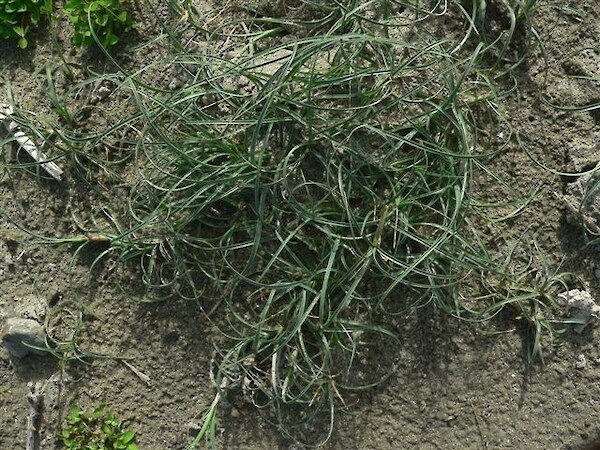Wellington spray contractor woes
September and October are months that plants suddenly start growing after winter dormancy. Unfortunately it often seems that the weeds grow quicker than the plants we want. Consequently, this is the time that coast care groups need a pest plant contractor to ease the work load of hand pulling weeds by doing some spray work.
Not only do the contractors need to be able to tell the difference between marram and spinifex, there are often other plants in the dunes they need to avoid spraying.
Native grass species, sand wind grass (Lachnagrostis billardierei), looks very much like  Yorkshire fog, an introduced grass. Carex pumila, sand sedge, is also found in mobile sand dunes and is often in damp seepages. It can easily be mistaken for couch grass.
Yorkshire fog, an introduced grass. Carex pumila, sand sedge, is also found in mobile sand dunes and is often in damp seepages. It can easily be mistaken for couch grass.
In the Wellington region, there are other difficulties for contractors - the biggest being the weather. Renowned for its wind, Wellington’s windiest months are in spring. Northerlies are the predominant winds in spring, but they are still interspersed by southerlies that come from Antarctica on a regular schedule, often until November.
Northerlies during spring and summer often arrive without rain and cause a huge build up of salt on the leaves of plants. Living on the west coast of the region, my north facing windows are proof of this, often needing a hose down after a good blow so we can see out the windows.
For this reason, contracts for spraying on the coast usually include a condition that spraying must be done within 24 hours of at least 5mm of rain. This condition often restricts a contractor to a handful of days over the period when, in any other part of New Zealand, this would be ideal time for spray releasing of the previous winters plantings or the initial spray of marram for next winters planting.
Good contractors give us good value but given these constraints they are in short supply and in the future we could end up doing more weeding by hand. Perhaps we could help our spray contractors by building up resources or holding workshops on plant identification and site specific seasonal spray requirements. If you think this is a good idea, please contact [Enable JavaScript to view protected content] or [Enable JavaScript to view protected content].
Posted: 16 December 2012 in the Flora & Fauna category
